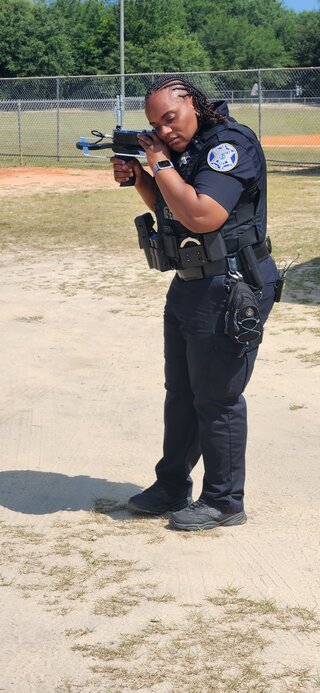Lexington County Sheriff 's Department’s Project Lifesaver helps bring loved ones home
When a loved one wanders, perhaps one with Alzheimer’s, it’s often a scary moment for families and friends left scrambling to bring their loved one home. Project Lifesaver is a program …
This item is available in full to subscribers.
Subscribe to continue reading. Already a subscriber? Sign in
Get 50% of all subscriptions for a limited time. Subscribe today.
Please log in to continueNeed an account?
|
Lexington County Sheriff 's Department’s Project Lifesaver helps bring loved ones home
When a loved one wanders, perhaps one with Alzheimer’s, it’s often a scary moment for families and friends left scrambling to bring their loved one home. Project Lifesaver is a program through the Lexington County Sheriff’s Department combining proven radio technology and specially trained search and rescue methods where recovery time averages about 30 minutes.
The sheriff’s department has 23 clients in their program so far. The person at risk of wandering wears the tracking device on their wrist or ankle and should they wander off, the search team uses a transmitter to locate the missing person. The transmitter picks up signals as far as a mile away, so it’s helpful when the caregiver provides as many details as possible and calls 9-1-1 as soon as they discover the person has wandered.
The person wearing the device is not able to take it off like a watch as the device has to be cut off thus making the tracking device more secure.
In a project demonstration at the sheriff’s department, Sr. Deputy Jonaire Mcleery turned on the transmitter locating device showing how it works.
“We are looking for the wanderer who has the transmitter on her arm with a number programmed in the receiver,” Mcleery said, turning on the transmitter and following the sound as it leads to the wanderer.
As the signal gets louder and stronger as the wanderer gets closer, Mcleery can decrease the range. She says it is helpful for the caregiver or family to know what the person was wearing and how long ago he or she was seen.
Whether it’s Alzheimer’s or Autism, Project Lifesaver helps caregivers and families who take care of someone prone to eloping.
“There are over six million living with Alzheimer’s, not counting other types of dementia,” said Beth Sulkowski, vice president of communications with the S.C. Chapter of the Alzheimer’s Association. “Others are also at risk. ... Alzheimer’s is one of the most common causes of wandering and dementia. It may seem aimless but the wanderer has a destination and location in mind. Warning signs can be feeling disoriented in known places and feeling a need to fulfill a job. Wandering can also be about a person in need.”
Another cause to keep in mind during the summer months is that heat and physical discomfort can drive a person’s confusion.
Sulkowski recommends checking in often with the person they are taking care of. She also says their hotline is available day and night for those caring for someone with Alzheimer’s or dementia. People may call 800-272-3900.
Project Lifesaver is a national non-profit protecting the at-risk populations in communities. It is also available through the Richland County Sheriff’s department and other public safety agencies.
Training is provided to the agency along with equipment, implementation of strategic methods and community policing courses providing a basic understanding of cognitive conditions.
The tracking device is for both children and adults prone to wandering or eloping. People can donate to the Lexington County Sheriff’s Project Lifesaver program by donating to the Lexington County Sheriff’s Foundation designating funds for Project Lifesaver.
Either send donations to P.O. Box 303, Lexington S.C. 29072 or call 803-785-2503. More information is provided at www.lexingtoncountysheriffsfoundation.com.
Other items that may interest you








Comments
No comments on this item Please log in to comment by clicking here